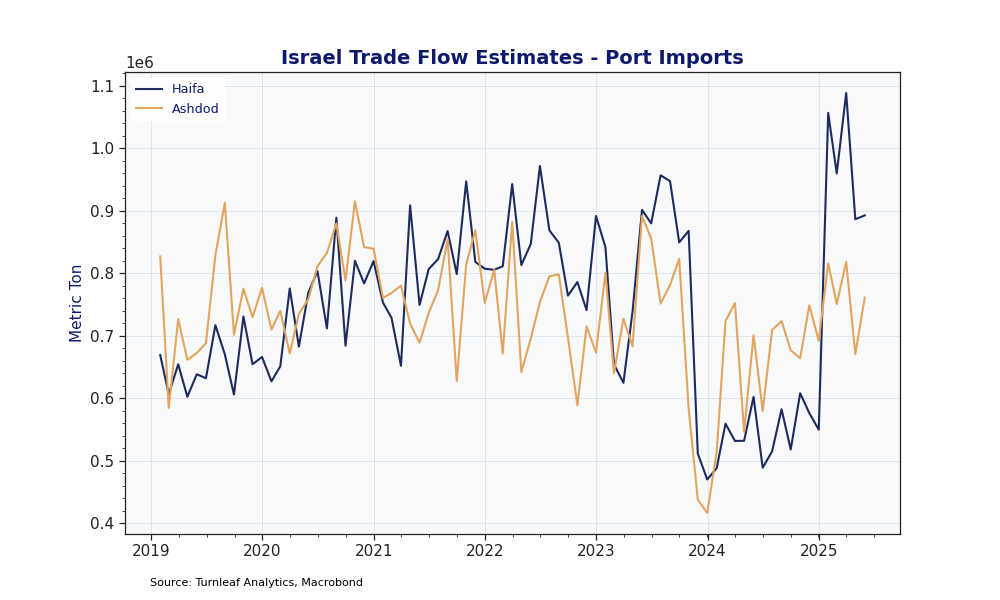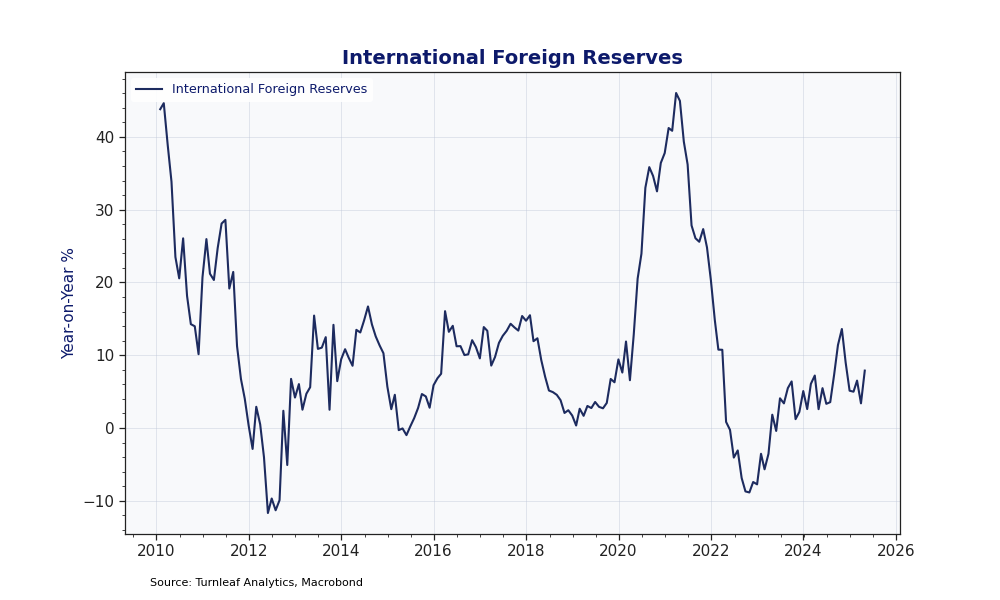Over the past 24 hours, Israel’s strike on Iran has markedly increased upside risks to inflation in the country. Just as tariffs introduce additional costs to consumers, businesses tend to pass on the cost of war to consumers. The risk of cargo ships getting entangled by war becomes priced into the cost of commercial goods with some businesses halting exports entirely. As the heightened risk could deter some firms from trading with Israel, demand for the shekel falls, pushing up import costs and, in turn, making everyday goods even more expensive for Israeli consumers.
These responses pose an upside risk to Israel inflation. As the situation evolves, Turnleaf will continue to rely on high-frequency and behavioral data to better assess the upside risks on our forecasts as the situation develops. With some reports citing that Israelis are even starting to stock pile food, the prices of everyday items will likely increase until confirmation that Iran will not retaliate for Israel’s recent attacks. If the recent oil shock—which drove Brent crude prices up 6% from yesterday (12th June 2025)—continues, it could push inflation even higher. It will be especially crucial to watch changes in Azeri Light – Israel’s largest source of oil imports.
In this note, we break down two key indicators we will are closely tracking:
- Daily Port Flow Estimates, Imports

Haifa and Ashdod, one of Israel’s two major ports, have stayed open and fully staffed, but they’re paying a price for the war. Past Red Sea attacks have forced ships to sail all the way around Africa, adding days to each voyage and driving up fuel and insurance bills—expenses that importers then pass on to Israeli businesses and consumers. On top of that, occasional carrier suspensions, tougher security checks, and stricter aid‐shipment clearances have created fresh bottlenecks at both ports.
With the UK and Greece already warning vessels to avoid the Strait of Hormuz, we’re likely to see even fewer ships at ports in the short term, pushing shipping costs higher and tightening supply further. The accompanying chart underlines this: every spike in Red Sea incidents sent container volumes at Haifa and Ashdod sharply lower, proof that security risks and forced detours can choke off Israel’s cargo flows. Yesterday’s strike on Iran layers an extra risk premium onto an already strained shipping in Israel. Carriers wary of escalating regional conflict will factor in the possibility of broader retaliation adding fresh upward pressure on inflation.
- Foreign Currency Reserves

After the October 7 attack, the Bank of Israel committed a significant amount of money to defend the shekel against depreciation. Almost 2 years later, the central bank managed to stabilize the local currency without using most of its allocated funds. So far, the shekel has depreciated slightly. As the central bank has sufficient room to intervene in currency exchange markets if the shekel slides further we expect its foreign currency balance sheet to be able to balance the situation to an extent.
We will update our CPI forecast for Israel in the light of the recent developments on Monday.